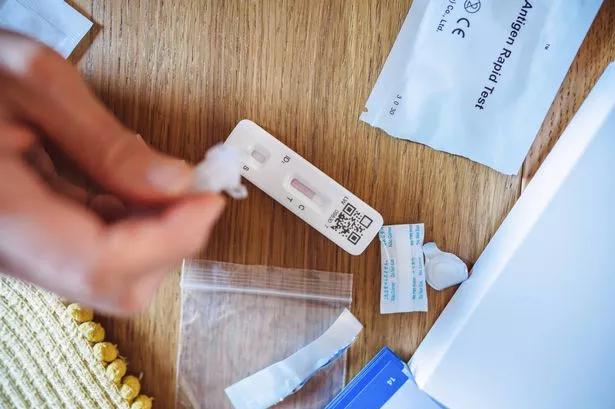Unveiling the Menace of the Covid Nimbus Variant

The Nimbus Variant: A Menacing Recap
A warning has been issued to the public over the new highly contagious 'Nimbus' strain of Covid, which has already been detected in Northern Ireland. The Nimbus variant, also known as NB.1.8.1, has been identified in 22 countries so far and by late April was responsible for approximately 10.7% of global infections, up from just 2.5% a month earlier.
Global Impact
The new variant has also been detected in Ireland, north and south, since it first emerged in January. The strain has already become dominant in parts of Asia, including China and Hong Kong, and has also been confirmed in the UK, US, Australia and popular holiday hotspots such as Thailand, Egypt and the Maldives. It's a descendant of the Omicron family of Covid sublineages, and has become increasingly prevalent throughout the spring in Europe, the Americas and the Western Pacific.
Potential Health Implications
The new strain has been declared a "variant under monitoring" by the World Health Organization (WHO), meaning that it could change the behaviors of the virus. As cases of the new 'Nimbus' variant surge, we break down everything you need to know about the new Covid strain. The new NB.1.8.1 strain has been declared a "variant under monitoring" by the World Health Organization (WHO), meaning that it could change the behaviours of the virus.
Clinical Insights
Similar to previous Omicron subvariants, NB.1.8.1 contains spike protein mutations associated with increased transmissibility. However, no evidence suggests that NB.1.8.1 causes more severe illness or significantly evades vaccine-induced or natural immunity. NB.1.8.1 has been linked to significant increases in Covid-19 cases across several countries. Health officials have said Nimbus' spike protein modifications could increase its transmission capacity and partially reduce the neutralizing efficacy of certain antibodies generated by previous infections, both of which would contribute to its spread.
Current Situation
Latest data from the Public Health Agency (PHA) has reported seven cases of the new strain, named NB.1.8.1, in the past eight weeks. While numbers here remain low, the World Health Organisation (WHO) has sounded the alarm as the latest Omicron variant now accounts for over 10% of global Covid infections.
Expert Perspectives
Lara Herrero, a virologist from Griffith University in Australia, suspects that NB.1.8.1 spreads more easily than other variants, which may be behind the recent surge in cases in Ireland and around the globe. "Using lab-based models, researchers found NB.1.8.1 had the strongest binding affinity to the human ACE2 receptor of several variants tested, suggesting it may infect cells more efficiently than earlier strains," Dr. Herrero wrote last month in The Conversation.
Preventive Measures
Despite a rise in cases, Dr. Sharad Joshi, Director and HOD, Pulmonology and Paediatric Pulmonology, Max Healthcare, has said "there's no need to panic". "To protect ourselves and those around us, it's important to practice good respiratory hygiene," said Dr. Joshi. "This includes wearing a mask, covering your nose and mouth when sneezing or coughing, and maintaining a safe distance where possible. It may be wise to avoid non-essential travel, large gatherings, and outings for the time being."
Symptoms and Effects
Symptoms of the new Covid strain are reported to be broadly the same as earlier versions of the virus with a painful sore throat a possible key sign of the new variant. According to Dr Naveed Asif, GP at The London General Practice, the NB.1.8.1 variant has a distinctive symptom, a severe sore throat known as a "razor blade sensation". Other signs of the new strain include common Covid symptoms like fever, muscle aches and congestion as well as redness in the back of the mouth and swollen neck glands. While previous strains largely caused cold and flu like symptoms, this new variant has been linked to gastrointestinal issues in some patients - which can include nausea, vomiting, diarrhoea, bloating, and abdominal pain.